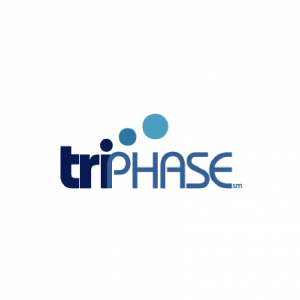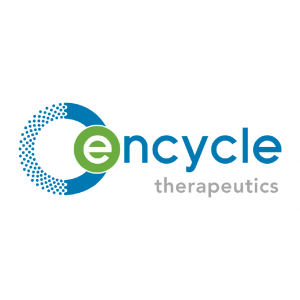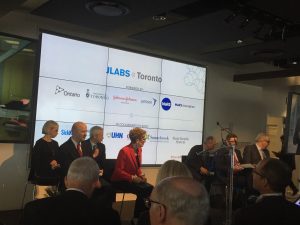Biotechnology Focus, a compendium of the Canadian life sciences industry, has published the following guest column by Dr. Raphael Hofstein, MaRS Innovation’s president & CEO, and Elizabeth Monier-Williams, director of marketing and communications.
There’s a historical trend in Canadian culture with far-reaching effects for the way we do business, ranging from entertainment to academia to science. Namely, it’s that until quite recently, Canadians weren’t into cultivating national star systems. [1]
 As Gideon Hayden recently wrote for TechCrunch, if you’re a Canadian tall poppy who made it big, there’s a good chance you struck out on your own by leaving the country. After you succeeded in Hollywood, Silicon Valley or another business arena of your choice, Canada recognized your achievements and welcomed you home with open arms.
As Gideon Hayden recently wrote for TechCrunch, if you’re a Canadian tall poppy who made it big, there’s a good chance you struck out on your own by leaving the country. After you succeeded in Hollywood, Silicon Valley or another business arena of your choice, Canada recognized your achievements and welcomed you home with open arms.
In the life sciences, as in music, Olympic podiums and other areas of Canadian life, this stereotype is changing. As we build more robust technology clusters, we’re becoming more comfortable with building Canadian excellence within our borders. We’re also seeing signs that the innovation economy is indeed on the cusp of helping our nation make the transition, in Prime Minister Justin Trudeau’s words, from a nation of resources to one known for its resourcefulness. That means supporting home-grown ideas, technology and companies.
Here are some of those telling signs in Canadian technology development, business transactions and public recognition.
 First, scientists from Toronto’s Sunnybrook Health Sciences Centre made history when they used ultrasound to non-invasively penetrate the blood-brain barrier, a last frontier in international efforts to more effectively transport chemotherapeutic agents across the blood-brain barrier and into the brain tumours of patients. Their elegant solution to the pervasive challenge of getting drugs inside such tumours will lead to new, more effective treatments with fewer side effects. While it will be years before their discovery reaches patients, Triphase Accelerator’s recent advances in other clinical trials for brain cancer treatments, made in partnership with Celgene, are part of the growing signal that we can expect huge growth in Canada’s life sciences in this area.
First, scientists from Toronto’s Sunnybrook Health Sciences Centre made history when they used ultrasound to non-invasively penetrate the blood-brain barrier, a last frontier in international efforts to more effectively transport chemotherapeutic agents across the blood-brain barrier and into the brain tumours of patients. Their elegant solution to the pervasive challenge of getting drugs inside such tumours will lead to new, more effective treatments with fewer side effects. While it will be years before their discovery reaches patients, Triphase Accelerator’s recent advances in other clinical trials for brain cancer treatments, made in partnership with Celgene, are part of the growing signal that we can expect huge growth in Canada’s life sciences in this area.
In Vancouver, Zymeworks orchestrated one of the largest life sciences transactions for Canada last year through their acquisition of Kairos. The deal, facilitated by our colleagues at the Centre for Drug Research and Discovery (CDRD), will augment the efficiency and efficacy of Zymeworks’ biologics, designed for high accuracy to focus on antibody drug conjugates (ADC).
 Within MaRS Innovation’s portfolio, Encycle Therapeutics’ nacellins are penetrating cell membranes to focus on intracellular disease-related targets. This Canadian company, emerging from the laboratory of Dr. Andrei Yudin at the University of Toronto, attracted investment from Canadian and international venture groups for their recent seed round, led by Japan’s Takeda Ventures. Another developing story revolves around Vasculotide, the lead asset of Vasomune Therapeutics from Sunnybrook Health Sciences Centre, which demonstrates promise in stabilizing patient vasculature (e.g., kidneys, lungs, etc.) in diseases associated with vascular leakage.
Within MaRS Innovation’s portfolio, Encycle Therapeutics’ nacellins are penetrating cell membranes to focus on intracellular disease-related targets. This Canadian company, emerging from the laboratory of Dr. Andrei Yudin at the University of Toronto, attracted investment from Canadian and international venture groups for their recent seed round, led by Japan’s Takeda Ventures. Another developing story revolves around Vasculotide, the lead asset of Vasomune Therapeutics from Sunnybrook Health Sciences Centre, which demonstrates promise in stabilizing patient vasculature (e.g., kidneys, lungs, etc.) in diseases associated with vascular leakage.
 Further afield, Canadian researchers are also leading technology developments in immuno-oncology, the art of training the immune system (T-cells) to recognize cancer cells as foreign to the body and therefore suitable for immune attack. Many Canadian start-ups are emerging in this scientifically hot area, as well as in cancer stem cells, which represent another notable hot spot. In April 2016, Abbvie-Abbot acquired California-based Stemcentrx in a $5.8-billion transaction (USD) because of their progress in attacking cancer stem cells, the progenitors of cancer cells. Likewise, fibrosis represents a significant unmet medical condition in need of next-generation medical treatments; companies like Novosis, emerging from MaRS Innovation’s research community, offer world-class approaches for fibrosis control. We can expect more national interest in commercializing technology in all of these promising research areas.
Further afield, Canadian researchers are also leading technology developments in immuno-oncology, the art of training the immune system (T-cells) to recognize cancer cells as foreign to the body and therefore suitable for immune attack. Many Canadian start-ups are emerging in this scientifically hot area, as well as in cancer stem cells, which represent another notable hot spot. In April 2016, Abbvie-Abbot acquired California-based Stemcentrx in a $5.8-billion transaction (USD) because of their progress in attacking cancer stem cells, the progenitors of cancer cells. Likewise, fibrosis represents a significant unmet medical condition in need of next-generation medical treatments; companies like Novosis, emerging from MaRS Innovation’s research community, offer world-class approaches for fibrosis control. We can expect more national interest in commercializing technology in all of these promising research areas.
Global trends were also prevalent in the Gardiner Foundation’s awards this year. The award committee of Canada’s most significant prize in science signalled their awareness of world scientific events by recognizing all five researchers who were instrumental in developing CRISPR. The Globe and Mail’s Ivan Semeniuk described this discovery as “a revolutionary gene-editing technique that carries enormous potential for many areas of biology and medicine.”
As recently as last January, Prime Minister Trudeau signalled Canada’s growing strengths in regenerative medicine by joining with Minister Navdeep Bains and Minister Chrystia Freeland to open the Centre for Commercialization of Regenerative Medicine’s GMP facility in Toronto. Expect to see movement in companies like ExcellThera, which specializes in the advanced technology that enables selective expansion of stem cells extracted from cord blood, to be among the facility’s first projects.

To build a constellation of Canadian life sciences stars, early-stage companies need a continuum of support as they launch, develop and scale. The federally-funded Centres of Excellence for Commercialization and Research (CECR) program is unparalleled in how it embraces, packages and advances the most promising technologies. As a CECR, MaRS Innovation believes that early partnerships with industry are crucial to our ability to accelerate these bright lights. We formed strategic partnerships with six global pharmaceutical companies; the ensuing constructive relationships allowed us to elevate their awareness of the innovation happening in Canada. Last month’s arrival of Johnson & Johnson’s JLABS Toronto incubator is indicative of the growing international awareness of, and interest in, the high calibre of Canada’s discovery work.
Einstein famously said, “Creativity is contagious. Pass it on.” In 2016, there’s every indication that Canadian creativity is becoming contagious, and making its impact felt across the life sciences.
How will you pass it on?
[1] Reporter, TV host and blogger Elaine Lui has written extensively on this topic in the entertainment context.

